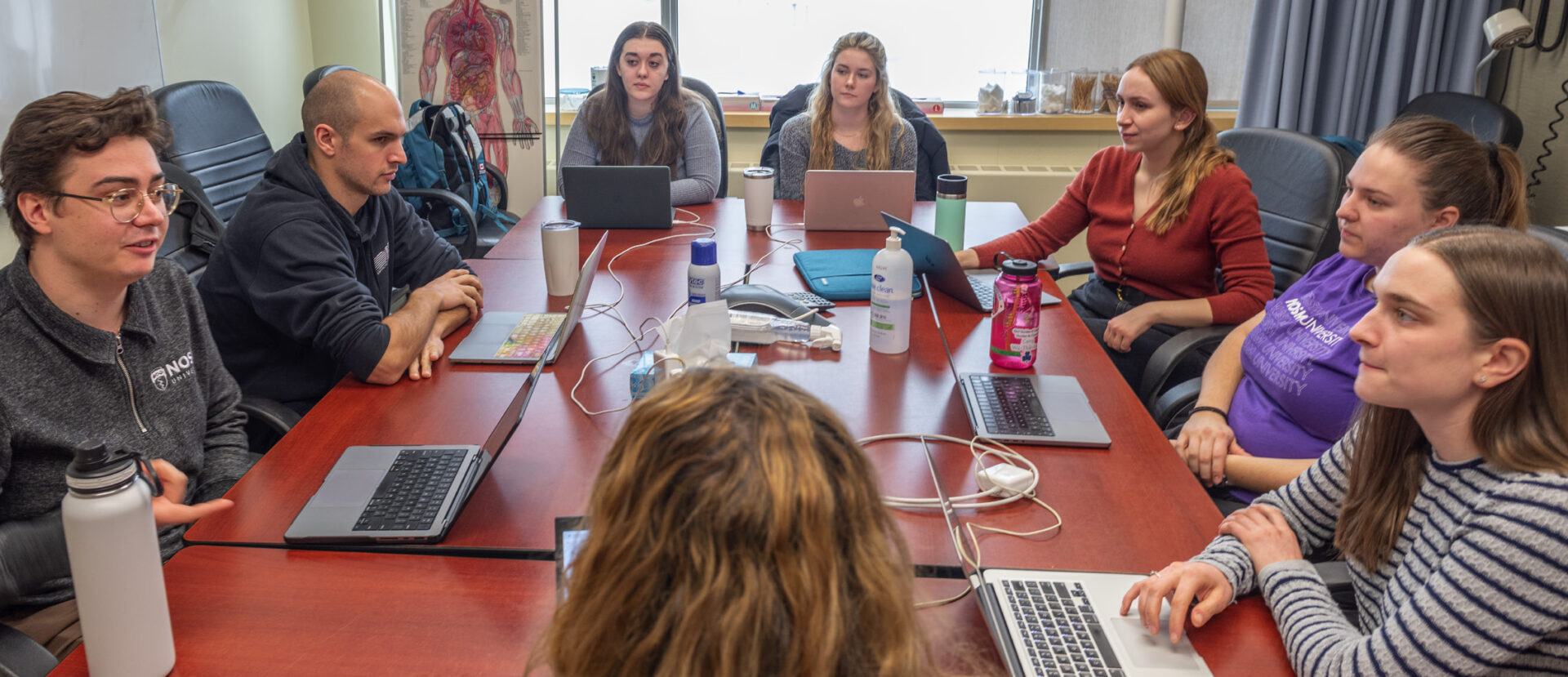NOSM University aligns education programs with societal and community needs

French language health services are a critical component of health equity in Northern Ontario. Since its inception, NOSM University has identified Francophones as a key population, and a group that is critical to achieving the University’s mandate of improving care across the region.
More than 21.6 per cent of Northern Ontarians identify French as the first official language compared to 3.9 per cent in Ontario. Language barrier continues to be significant cause of health inequity amongst this group. NOSM University is making it easier for Francophones with “Active Offer” training mandatory for entry into the MD program and now improving curricular offerings in French has become a reality.
New NOSM University Francophone Curricular Initiative addresses health inequities in the North
NOSM University’s new Francophone Curricular Initiative offers medical students the option to study in French. Launched in September 2022 as a pilot initiative, the first cohort saw 90 per cent of first-year Francophone medical students participate.
“The high uptake is a reflection of the need for this curricular initiative,” says Dr. Nicole Ranger, Francophone Curricular Lead and alumna of NOSM University. “Learners come out of high school and university fluent in French, but they don’t have the medical terminology regarding patient care. Knowing that they would benefit extraordinarily from learning in French, these students were excited to be the first participants and are becoming strong ambassadors for our initiative.”
Previously, medical students who wanted clinical placements in French had to complete extra work on top of their MD curriculum. The Francophone Curricular Initiative is more equitable and allows students to complete some of their mandatory MD curriculum in French.
The pilot will roll out over four years, with additional years of the MD curriculum added as the first cohort progresses through their studies. While not all educational activities are offered in French, Francophone students currently participate in small group learning in French throughout their first two years of medical school. While on campus, they also interact with Francophone Standardized Patients in some of the clinical skills sessions.

They can also undertake clinical placements in French, and every effort is made to pair them with Francophone preceptors.
Training new doctors in French will increase equitable access to health care across Northern Ontario. “Language is one of the social determinants of health,” Dr. Ranger explains. “If patients undertake the care in a language they’re most familiar with—their mother tongue—that’s a key aspect to improving the communication between providers and patients and improving patient safety. Patients can better understand medical instructions and what they are consenting to.”
Students in the first cohort recognize the value of completing their medical studies in French.
“Considering the high population of Francophones in Northern Ontario, it is important for me to be able to offer equitable health care in French and English. As a physician, allowing a patient to speak in their mother tongue can make any medical encounter a better one,” says medical student Félix Lavigne.
Simon Paquette, a second-year medical student, and is participating in the pilot cohort. “I wanted to gain a better appreciation for linguistic and cultural diversity in health care,” he says. “My biggest takeaway is the importance of actively offering to speak French in health-care encounters. Offering French-language services to patients and never assuming English is the default language is now my standard practice. By participating in this initiative, I will enhance my ability to serve Francophone communities and contribute to the promotion of equitable health-care access for Franco-Ontarians.”
“Our university’s special mission is to be responsive to the unique health-care needs of the people of Northern Ontario, including Francophone communities, by providing innovative medical and health education programs. This is tied to our social accountability mandate,” says Dr. Céline Larivière, Provost and Vice President Academic. “The Francophone Curricular Initiative aligns very well with the university’s mission and mandate and is supported by our admission strategies.”
By aligning education programs with societal and community needs, NOSM University graduates physicians who are leaders that transform health-care systems and improve population health outcomes.
The intersection of health equity and social accountability happens in the NOSM U research and discovery direction. Through multiple efforts including an annual Northern Health Research Conference (NHRC) the NOSM Research Toward Health Hub (NORTHH) focussed on primary care research and the newly named Dr. Gilles Arcand Centre for Health Equity (which houses the Medical Education Research Lab in the North (MERLIN), research at NOSM U is growing by leaps and bounds.
NOSM University is now recruiting Francophone Standardized Patients to support the Francophone Curricular Initiative. Looking for casual work? Help train Northern Ontario’s future doctors by portraying a patient.
Themes
Research Priorities
Clinical and Translational Health
Biomedical and Basic Sciences
Environmental Health
Physiology, Biological Systems and Functions
Disease Process, Diagnostics and Therapeutics
Population and Public Health
Humanities and Social Sciences
Health Professions Education
